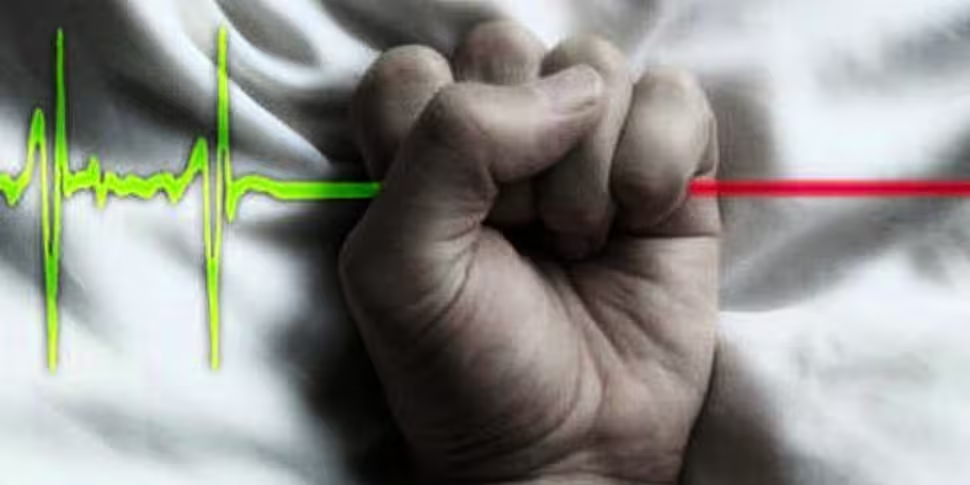As the European Court on Human Rights decides on the fate of a Quadriplegic in France Jonathan deBurca Butler asks is it time to deal with death ourselves
Earlier this month a New Zealand website called MountainScene carried the sad story of a search and rescue dog named Ella who had to be put down. The black Labrador served nine years with LandSAR in Queenstown, New Zealand and retired four years ago after a glittering career in the mountains and valleys of the country’s south island. Ella was the first dog in New Zealand qualified in all three search disciplines – avalanches, wilderness searches and wilderness tracking and her owner Brett MacDonald estimated that he and his canine companion averaged “three to five searches” annually.
According to MacDonald, Ella’s retirement was a happy one but in recent months it became apparent that she wasn’t well. She was, he said, becoming forgetful and losing her faculties. One evening in June Ella went missing. She was found wandering aimlessly and frightened.
“It got to the point where I didn’t think it was fair on her, given what she’d achieved,” said MacDonald. “I didn’t want to think of her stuck in a creek somewhere.”
Ella was 14-years-old when she was put to sleep.
Last Tuesday in France the seventeen-judge Conseil d’Etat ruled that doctors in Reims could legally stop feeding and hydrating quadriplegic Vincent Lambert. The 38-year-old has been on life support since a motorcycle crash in 2008 put him into a state of deep coma. His condition has improved slightly; that is if we consider what the doctors are calling minimal consciousness an improvement.
Lambert’s physicians know he feels pain but it is not known if he is able to understand what happens around him and although he can move his eyes he is unable to communicate. Those familiar with the biography of former Vogue editor Jean Bauby, The Diving Bell and the Butterfly, will remember that he was able to communicate by blinking his one good eye. Indeed Bauby wrote his book while ‘locked in’ his own body unable to move anything bar his eye. Lambert is incapable of even that.
Lambert’s doctors say he should be allowed to die. They have the support of his wife, nephew and six of his eight siblings who all agree that intravenous food and water supplies should be cut off. According to his wife Rachel, the former psychiatric nurse had always indicated that if he were ever in a similar state to the one he is in now, he would not wish to be kept alive artificially.
However, his parents along with a brother and a sister oppose termination. They say that Lambert is not dying and is not brain dead but that he is disabled. Those in Lambert’s family who support termination of care say that his parents’ wish to keep their son alive is driven by a deep Catholic faith.
After the Conseil d’Etat decision, Lambert’s mother and father took the case to the European Court of Human Rights who on Wednesday ordered the hospital to delay any withdrawal of food and water for the duration of the case.
Whatever they decide could have far-reaching effects throughout Europe. While euthanasia is illegal in France there are circumstances in which treatment can be withdrawn from patients on life-support. The Conseil d’Etat felt that Lambert’s case fell into that bracket. Euthanasia is already legal in Belgium, Luxembourg, Switzerland and the Netherlands where patients with incurable diseases can request help to end their lives in the case of “hopeless and unbearable suffering”. These countries have come to the mature conclusion that human adults are able to decide how to end their lives themselves. Lambert of course cannot request termination and thus this critical decision on how to end his own life is denied him. His sad case and others like it suggest we should all perhaps be compelled to face up to our inevitable end.
Would it be too much to suggest that when a citizen of a state turns eighteen, as well as being given the vote and being allowed to drink alcohol legally, they should be asked to fill in a document detailing how they would wish to be treated, if at all, in the case of an accident that renders them incapacitated or severely brain damaged?
There is of course the obvious problem of how to define incapacitation but surely the discussion has to be had.
Death is one of the few things we are absolutely and unquestionably sure about in life. We should not leave it to others to decide if and how we suffer should something awful happen. Had Vincent Lambert had to fill in such a document, his wishes, as allegedly heard by his wife, would be on paper and signed. His (apparent) hell would now be over.
The religious element of this story is also hard to ignore.
Life is indeed precious but it is meant to be lived and not endured or suffered. Some faiths like to think that suffering brings its own rewards in some fantasy after-life. There is no evidence to suggest that this after-life exists.
In this case, the ECHR (and perhaps more pressingly the patient’s parents) must ask themselves would they allow Vincent Lambert to be bound to a chair, gagged and stuck with pins for six years? Christ may have suffered terribly on the cross but would he last six years?
The answer in both cases is of course an emphatic no. Brett MacDonald said he didn’t want to find his rescue dog Ella “stuck in a creek somewhere”. Ella had a family that cared for her deeply. Her family knew that her quality of life had become appalling and wanted to do the humane thing.
Vincent Lambert is currently stuck in a hellish creek of his own and has been for too long.
Surely we have more respect for humans than dogs.
Follow Jonathan on twitter @deburcabutler









